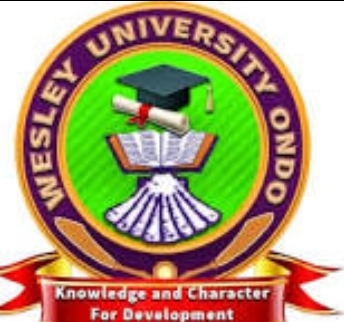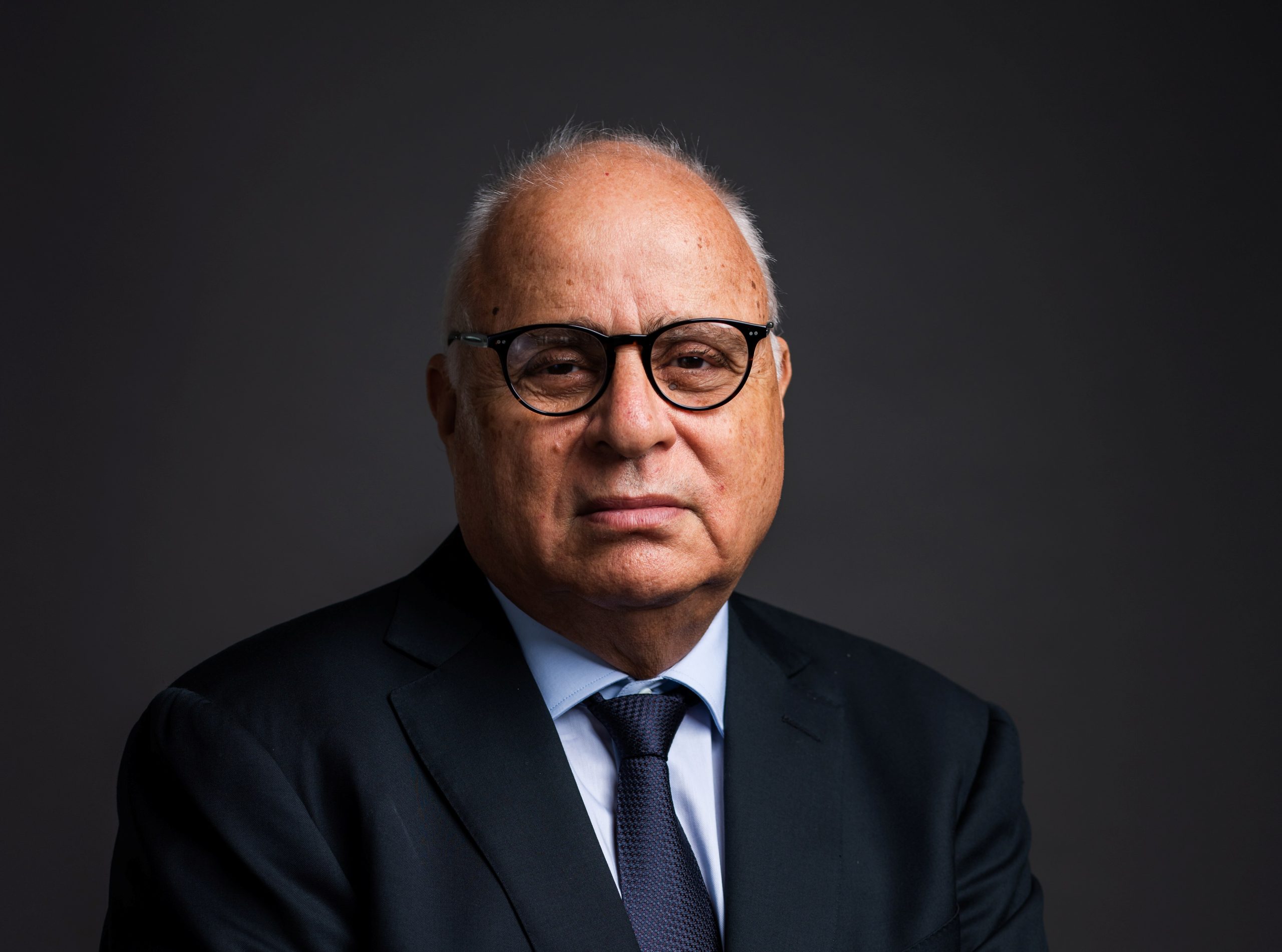Universities are important development institutions because they expose students to new research and technology, while also encouraging creative and independent thought. This effect contributes to the development of a global citizen capable of functioning productively anywhere in the world.
Poor research funding, infrastructural decay, a lack of industry-driven curriculum, and ineffective teaching techniques have been major issues for both private and government-owned universities in Nigeria. These have a multiplier effect on the quality of graduates churned out yearly as adequate learning, teaching, innovation and excellence are not easily accessible.
In line with the World Bank’s position that a university in the 21st century must excel in teaching, community service, and research, only a few universities in Nigeria have maintained a leading position of high standards and placed their names in the first row.
These Universities have over the years built a reputation of excellence which is evident in their alumni who are making positive impact across industries in Nigeria and even beyond. This accomplishment would not have been possible without the University’s council’s foresight and deliberate approach to producing exceptional human capital capable of creating value wherever they find themselves. These universities stand out in terms of infrastructure, teaching techniques, equipment, reputable academics, and, most importantly, they have addressed cultism and other vices head-on, ensuring peace and tranquillity on campus.
It is on this note that we are publishing this Ivory Towers who sits on the front row in this October 1 edition of the series for the year 2025.
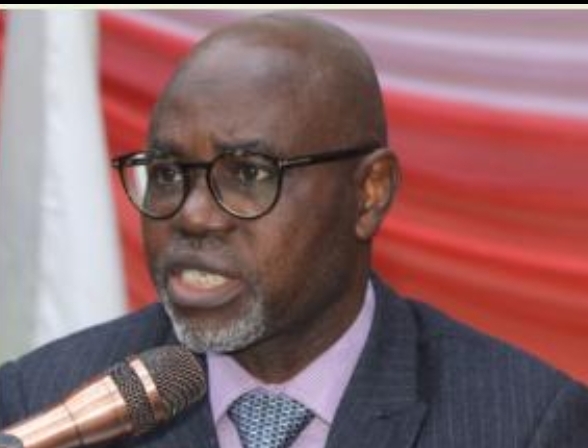
Unilorin: Driving Excellence, Integrity, and Innovation in Higher Education through Prof. Wahab Olasupo Egbewole, SAN
In any serious conversation about Nigerian universities that embody global excellence, one name consistently rises to the fore: the University of Ilorin. Established in 1975, this iconic institution, fondly known as the “Better by Far University,” has grown into one of Nigeria’s most prestigious and sought-after centres of higher learning. Renowned for its culture of discipline, innovation, and academic excellence, the university has built a legacy that resonates far beyond the country’s borders.
Nestled in the historic city of Ilorin, Kwara State, the University boasts one of the largest land expanses of any tertiary institution in Africa, over 5,000 hectares of serene landscape dedicated to learning, research, and innovation. Within this vast campus thrives a vibrant academic community;16 faculties, over 100 departments, and a dynamic student body engaged in programmes that cut across the arts, sciences, engineering, health sciences, law, agriculture, and social sciences. Guided by its enduring motto, Learning and Character, the institution not only imparts cutting-edge knowledge but also instills values that prepare its graduates for leadership and service on the global stage.
Perhaps one of its most distinguishing features is its famed uninterrupted academic calendar, a rarity in Nigeria’s higher education space. This consistency has made Unilorin a magnet for some of the brightest students from across the nation and beyond, positioning it as a trailblazer in shaping the future of education, research, and innovation in Africa.
At the helm of this formidable institution is Professor Wahab Olasupo Egbewole, SAN, the 11th Vice-Chancellor of the University. A distinguished scholar and astute manager of resources, Prof. Egbewole has brought to bear his wealth of professional, organizational, and academic expertise in advancing the university’s mission. His principled leadership, coupled with a bold vision, has continued to raise the bar, reinforcing Unilorin’s reputation as a household name in Nigeria’s academic space and a model of global relevance.
Speaking on the policies that sustain the institution’s culture of excellence, the Vice-Chancellor explained that the university’s strength lies in its rigorous processes. “Excellence is always the basis upon which we embark on anything,” he said. From the departmental level to the faculty, curriculum committee, business committee of senate, and finally the senate itself, every programme is subjected to layers of scrutiny. “We also believe in sustainability, which is why everything goes through a number of processes. Our mantra is to put round pegs in round holes, and that has assisted us over time.”
Beyond policies, Unilorin thrives on a set of corporate values that define its character. “Our core values include Integrity, Excellence, and Humaneness. We are not just an educational institution; we are one with a difference in how we relate with students and staff, in how we design enduring curricula, and in the premium we place on values.” This translates into zero tolerance for abandoned projects, corruption, cultism, or misconduct. “These are irreducible for us, because everything we do here must reflect integrity and a drive for excellence.”
Looking ahead, Prof. Egbewole articulated a bold vision through Vision 110-500, an ambitious roadmap to position Unilorin as number one in Nigeria, among the top 10 in Africa, and one of the best 500 universities globally. “We call it shuttling to the space,” he explained. “That is where we belong, and where we are supposed to operate.”
To achieve this, the university is embracing technology-driven transformation. Processes from admission to graduation are being fully automated, minimizing unnecessary human contact and ensuring efficiency. Classrooms are supported by a homegrown Learning Management System (LMS) that enables students to attend lectures, participate in discussions, pay fees, apply for accommodation, and interact with lecturers from the comfort of their rooms anytime, anywhere. Staff benefit from an enterprise portal that streamlines communication and administration, making physical queues and bureaucratic bottlenecks a thing of the past.
Internationalization is another pillar of Unilorin’s global drive. With over 100 active Memoranda of Understanding across continents, the university has established strategic concentric circles of partnerships. Starting with KU8+ (a synergy of all universities in Kwara State), it has expanded into national, regional, and continental collaborations. Today, Prof. Egbewole serves as Secretary-General of the Association of West African Universities, Vice-President of the Association of African Universities, and an active member of U6, a pan-African consortium. Beyond Africa, Unilorin maintains active collaborations with institutions in Asia and Latin America, including Brazil, China, and Malaysia. “We are not doing this for the fun of it,” he emphasized. “We are doing it because collaboration at those levels enriches our processes and impacts the Nigerian higher education system.”
At the infrastructural level, the university is intentional about creating an environment that inspires learning, productivity, and pride. “We want a campus that appeals to students, staff, and visitors alike,” Prof. Egbewole said. True to this vision, Unilorin has nurtured a green campus with manicured lawns and serene landscapes that reflect order and discipline. Ten classrooms are being transformed into world-class smart learning spaces, while sustainability drives innovation across facilities. “As we sit in the Senate building now, we are not on the national grid,” the Vice-Chancellor revealed. “We are powered by solar, and it drives practically all our processes. For the past two and a half years, we have resolved that all new infrastructures in Unilorin will be smart.”
So, from its values to its infrastructure, from local policies to global collaborations, the University of Ilorin continues to live up to its mantra of being Better by Far. With resilience, innovation, and a clear global vision, it stands as a shining model of excellence not just for Nigeria, but for Africa and the world.
============
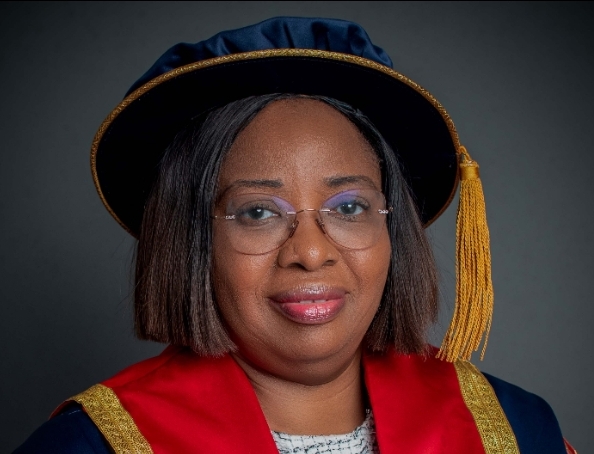
UNIMED: A Beacon of Global Excellence in Medical Education
In less than a decade since its establishment, the University of Medical Sciences (UNIMED), Ondo, has carved a reputation as one of Nigeria’s trailblazing institutions dedicated solely to the advancement of medical and health sciences. Purposefully conceived to bridge critical gaps in healthcare training, research, and innovation, UNIMED stands today as a model of global excellence in specialized education. Its unique mandate to nurture a new generation of healthcare professionals equipped with cutting-edge knowledge and skills has positioned it among the foremost universities shaping the future of Nigeria’s educational and health sectors.
With a forward-looking vision that integrates rigorous academic standards, groundbreaking research, and community-focused healthcare delivery, UNIMED has steadily risen in prominence, producing graduates who are not only locally relevant but globally competitive. The institution’s impact is visible in its contributions to medical innovation, collaborative research, and its role in strengthening Nigeria’s healthcare system.
At the helm of the University is a trailblazer whose career embodies both scholarship and service. Prof. Ebunoluwa Aderonke Adejuyigbe, the third substantive Vice-Chancellor and the first female to hold the position, is a distinguished Professor of Paediatrics and Child Health with a global reputation for excellence in medical education and research. Her journey is marked by an unwavering dedication to child health and academic leadership. From her tenure as Executive Director of the Central Office of Research at Obafemi Awolowo University to her years of service as a Consultant Paediatrician at the OAU Teaching Hospital, she has consistently combined clinical expertise with research-driven innovation. Her groundbreaking work in neonatal care has transformed standards of practice, earning her international recognition, research grants, and advisory roles across the continent and beyond.
A Fellow of the Nigerian Academy of Medicine, former Dean of the Faculty of Clinical Sciences at OAU, Vice-President of the African Society of Paediatric Infectious Diseases, and Co-Chair of the National Child Health Technical Working Committee, Prof. Adejuyigbe has brought her pedigree of excellence to UNIMED.
Highlighting the university’s rapid growth, she noted that in just four years, undergraduate programmes expanded from 12 in 2020 to 40 by 2024, while postgraduate offerings have grown to 59, including 23 PhD programmes. UNIMED now boasts the largest number of medical and dental specialists pursuing doctoral degrees in Nigeria, spanning Clinical Sciences, Community Medicine and Public Health, Dental Sciences, Pathology, and Surgical Sciences programmes uniquely run in partnership with the West African College of Surgeons and the West African College of Physicians.
UNIMED’s reputation for consistency is equally striking. For over 10 years, the institution has maintained an uninterrupted academic calendar, even pivoting swiftly to online teaching during the COVID-19 pandemic, an achievement few public institutions in the country could match. In that time, it has produced three sets of medical doctors and dentists, along with multiple cohorts of nurses, physiotherapists, medical laboratory scientists, and other health professionals. Its students continue to record a remarkable 100 percent pass rate in professional examinations conducted by national regulatory councils.
These strides have not gone unnoticed. In 2021, the National Universities Commission (NUC) ranked UNIMED the third-best specialized university in Nigeria, the second-best overall in Ondo State, and the fourth-best state university nationwide an impressive feat for a young institution still under a decade old.
Beyond rankings, UNIMED has set the pace in academic innovation, as it established the first Faculty of Medical Rehabilitation in Nigeria and West Africa, with five pioneering degree programmes in physiotherapy, audiology, prosthetics and orthotics, occupational health, and speech-language therapy. It also houses Nigeria’s first full-fledged School of Public Health, with the largest portfolio of public health programmes in the country. The university further blazed the trail with the introduction of Nigeria’s first MSc and PhD in Health Law and Policy.
Quality assurance has been another hallmark. Through sustained investment in laboratories, libraries, and teaching infrastructure, the university has steadily met accreditation benchmarks. Partnerships like Research4Life have provided access to global databases, enriching teaching and research. Many programmes now boast full accreditation, affirming the institution’s growing reputation among Nigeria’s state-owned and specialized universities.
Recognition and partnerships further underline UNIMED’s rise. Its students have earned prestigious placements in global leadership programmes such as the Millennium Fellowship of the United Nations Academic Impact and MCN. Under visionary leadership, the university has expanded programmes, maintained institutional stability, and cultivated strategic collaborations with government, industry, and international bodies.
Its mission to drive high-quality research is reflected in the establishment of 15 interdisciplinary research centres, including the Centre for Molecular Biosciences and Medical Genetics and the Centre for Herbal Medicine and Drug Development. UNIMED’s growing research profile has attracted prestigious external grants, among them the British Council’s Innovation for African Universities programme in 2022, where it emerged as one of only six Nigerian universities and 24 across Africa to secure the award.
Yet UNIMED’s vision extends beyond academia. The university remains firmly embedded in its host communities, running outreach initiatives such as annual debate competitions for primary schools, STEM competitions for secondary schools, community dental services, and sustainable primary healthcare interventions in Oke-Igbo and Ilu-Titun.
In less than a decade, UNIMED has grown into more than a university. It is a hub of innovation, a beacon of medical education, and a trusted community partner shaping the next generation of health professionals while leaving an indelible mark on society.
On her message to prospective students and staff, Prof. Adejuyigbe described UNIMED as a place of limitless possibilities. For students, she said, the university provides not just education but an environment where dreams can be nurtured and destinies shaped. For staff, UNIMED is more than a workplace, it is a community where service translates into impact. “Here, you find fulfillment,” she affirmed. “As you work, you know you are imparting lives while also improving yourself. That is what I want people to know about UNIMED.”
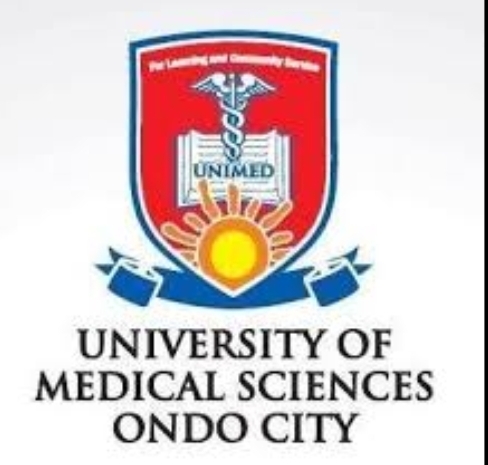
============
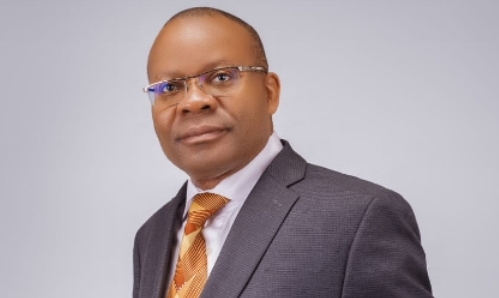
At UAES, We Produce Solution-Providers, Not Just Graduates – Prof. Christopher Chiedozie Eze
When the conversation turns to universities shaping Nigeria’s future through global excellence, the University of Agriculture and Environmental Sciences (UAES), Umuagwo, Imo State, often comes up as a bold experiment with profound promise. Established not simply to expand the nation’s list of tertiary institutions, UAES was conceived as a deliberate response to some of humanity’s most urgent challenges, as its mission is to harness knowledge in agriculture and environmental sciences for sustainable development, innovation, and competitiveness.
At the heart of this vision is its Vice Chancellor, Prof. Christopher Chiedozie Eze, a renowned scholar of Agricultural Economics, lawyer, seasoned administrator, and author of more than 120 publications. With a career that spans academia, public service, and international scholarship, Prof. Eze embodies the grit of a leader who has earned success by a dint of hard work.
He describes UAES as a “deliberate intervention. In his words “Our uniqueness is rooted in our mandate, our timing, and our forward-looking vision” At a time when higher education is shifting from abstract theory to problem-driven solutions, UAES is reframing agriculture and environmental sciences not as relics of the past, but as frontiers of innovation in food security, climate adaptation, and green economies.
He affirmed that what sets UAES apart is not only what it teaches, but how it teaches, saying that as a young institution, UAES is unencumbered by legacy burdens, agile enough to embed global best practices from the ground up. Its curriculum is carefully re-engineered, weaving climate-smart agriculture, agribusiness, sustainability studies, and digital technologies into every programme. The university’s location provides an added advantage: a living laboratory where students and researchers engage directly with farming communities, agro-industrial clusters, and environmental stakeholders.
Partnerships are another cornerstone of UAES’s strategy. From collaborations with the International Institute of Tropical Agriculture (IITA) on post-harvest innovations to its integration into Erasmus Mundus networks for international exchanges, the university is building bridges into global knowledge systems. These alliances expand opportunities for staff and students alike, positioning UAES as an active participant in worldwide conversations on sustainability.
Yet collaboration alone is not enough. From inception, the university has anchored its credibility on robust policies and consistent programmes. It has institutionalized problem-driven research clusters, invested in staff development, and embedded entrepreneurship across disciplines. Every graduate is expected to leave with more than a degree: they leave with a marketable skill, an entrepreneurial mindset, and the capacity to provide solutions. Transparent, ICT-driven systems underpin admissions and academic management, while mentorship schemes, leadership training, and modern e-learning platforms ensure students are active participants in their own learning. A dedicated Directorate of Academic Planning and Quality Assurance benchmarks programmes against both NUC requirements and global best practices.
Peace and security, Prof. Eze insists, are not afterthoughts but the very foundation of scholarship. From its earliest days, UAES adopted a comprehensive framework that blends physical safeguards with institutional culture, community partnership, and technology. CCTV surveillance, biometric identification, and collaboration with state security agencies create deterrence and response systems, while town-gown relations and community watch structures foster shared ownership of campus safety. Students themselves are engaged as partners through conflict resolution training, peer mediation, and citizenship education. By addressing welfare needs, housing, health services, counselling, and grievance redress, UAES reduces friction and cultivates stability. Insecurity, the Vice Chancellor argues, is best prevented by meeting needs before they turn into agitation.
Looking beyond its campus, UAES is outspoken about what Nigeria must do to advance education and research. Prof. Eze calls for a paradigm shift from government dependence to a collaborative ecosystem where government, private sector, and universities act as co-investors in national development. For government, this means long-term funding frameworks, research grants tied to national priorities, and policies that incentivize innovation. For the private sector, it means moving beyond philanthropy to strategic investment in research hubs, professorial chairs, and internship pipelines that transform university discoveries into market-ready solutions. Public-private consortia, technology parks, and innovation incubators, he argues, are the missing links in Nigeria’s education-to-economy chain.
All of this ties back to a central ambition: preparing students for opportunities that transcend geography. UAES’s curriculum is benchmarked against global standards, embedding the Sustainable Development Goals while emphasizing climate-smart agriculture, agribusiness, and digital literacy. International partnerships have created exchange and mobility programmes that expose students to diverse laboratories, pedagogies, and cultures, sharpening their competitiveness for global scholarships, internships, and research collaborations.
The university also invests heavily in research and innovation, encouraging students to co-author papers with faculty in global journals, pitch start-up ideas, and participate in international conferences and competitions. On campus, innovation hubs and incubation centres nurture prototypes into viable enterprises, preparing students to secure recognition, funding, and mentorship worldwide. Soft skills, leadership training, and intercultural competence are deliberately cultivated to ensure graduates are not only technically sound but globally employable.
Looking to the future, UAES is already building strong alumni and diaspora linkages, creating networks that serve as gateways to internships, fellowships, and collaborative projects abroad. For Prof. Eze, these strategies all point to one conviction: UAES graduates are not being shaped merely to participate in the global arena, but to excel in it.
UAES may be young, but its compass is steady. With bold ambition, deliberate policies, and a future-oriented vision, it is positioning itself not only as a Nigerian university but as a global institution, one where agriculture and environmental sciences are reimagined as engines of innovation, sustainability, and prosperity.
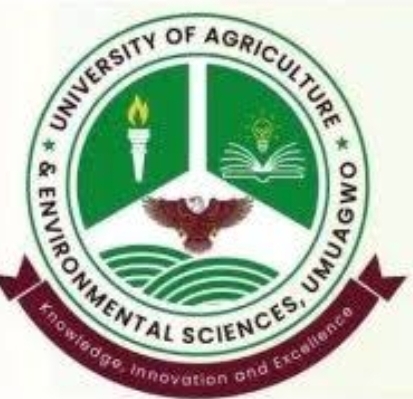
=============
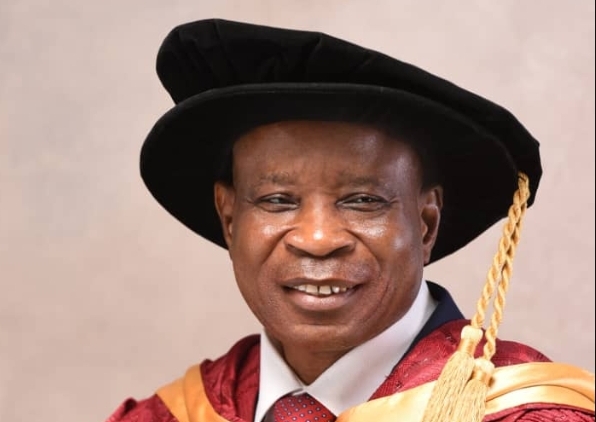
McPherson University: Nurturing Global Excellence through Faith, Knowledge, and Innovation
Founded in 2012 by the Foursquare Gospel Church in Nigeria, McPherson University, Seriki Sotayo, Ogun State, stands as a beacon of academic distinction and moral uprightness in the Nigerian higher education terrain. With a vision to build people of excellence and integrity for service, the university provides qualitative and functional education grounded in Godly values, preparing graduates to thrive as global citizens and transformational leaders.
As the 49th private university licensed by the National Universities Commission (NUC), McPherson University has distinguished itself within a short span through its commitment to academic innovation, infrastructural growth, research development, and character formation. Guided by an enduring pursuit of global relevance, McPherson University equips its students not only with intellectual skills but also with moral strength, entrepreneurial drive, and the resilience needed to compete and contribute in an interconnected world.
Under the visionary leadership of its current Vice-Chancellor, Professor Francis Adegboye Igbasan, a distinguished scholar, and seasoned administrator whose career embodies academic excellence, integrity, and transformational leadership, McPherson University has embraced a bold agenda that emphasizes academic expansion, cutting-edge technology, staff and student welfare, community engagement, and world-class infrastructure. These initiatives are positioning the university as a model of global excellence in faith-based education, bridging the gap between knowledge and service, and raising a new generation of leaders equipped to solve local and global challenges.
On the unique opportunities that set McPherson University apart as a university of global excellence, Professor Francis Adegboye Igbasan noted that the institution continues to distinguish itself through deliberate initiatives anchored on global best practices. These opportunities are driven by strategic international partnerships, proven student success on international platforms, sustained investment in high-caliber human capital, and the steady development of world-class infrastructure.
Through the establishment of the Centre for Entrepreneurship and Innovation, McPherson University ensures that students graduate with practical skills in diverse fields such as fashion design, computer and solar panel installation, unisex salon management, textile design, and footwear and leather works. This entrepreneurial training comes with professional certification, guaranteeing that every undergraduate leaves with at least two qualifications, an academic degree and a professional certificate. In addition, the university has forged a partnership with Nexford University, USA, through a Memorandum of Understanding that allows postgraduate students in the MBA programme to earn dual certifications, equipping them with a distinctive global advantage. The institution is also deepening its international collaborations, with ongoing discussions involving Liberty University and Pacific University in the USA, as well as Kirk University in Thailand.
McPherson University’s commitment to excellence is further reflected in the achievements of its students on global platforms. A shining example is a 400-level Software Engineering student who secured the prestigious $5,000 Lisk African Grant, an initiative that supports emerging developers and entrepreneurs across the continent. Students have also excelled in hackathons and national athletics competitions, returning with medals that underscore the university’s capacity to nurture well-rounded, globally competitive talent.
The university has also in recent years recruited over 180 highly qualified staff members, reinforcing its pool of human capital. Beyond recruitment, the administration places a premium on exposure and professional growth by sponsoring staff members to attend international conferences, thereby enhancing their expertise while raising the university’s visibility on the global stage.
Reflecting on the policies and programmes designed to sustain the tradition of quality education for which McPherson University is renowned, the Vice-Chancellor, Professor Francis Adegboye Igbasan, emphasized the institution’s unwavering commitment to excellence through a multi-faceted approach, a strategy that integrates robust staff development policies, an emphasis on practical learning, holistic student support, and the promotion of a vibrant research culture.
In the area of staff development, the university consistently sponsors personnel for higher degrees and professional certifications to ensure they remain competitive in their fields. A transparent, merit-based promotion system rewards diligence and competence, fostering high morale and job satisfaction. Staff members who attain additional qualifications during their service are duly converted, regraded, or upgraded to positions that reflect their new academic status, thereby cultivating a culture of continuous growth and professional advancement.
McPherson University also prioritizes hands-on training through strategic collaborations with reputable healthcare institutions such as Adeoyo Hospital, Ibadan, the Federal Neuropsychiatric Hospital, Aro, and the Federal Medical Centre, Abeokuta. These partnerships, he affirmed provide invaluable clinical experience for students in Nursing Science, Medical Laboratory Science, and related health disciplines. A landmark Memorandum of Understanding with the Ogun State Ministry of Health further strengthens cooperation in healthcare research, clinical services, and student training.
Beyond academics, the Vice Chancellor further disclosed that the Directorate of Student Affairs also offer comprehensive counseling services that address both academic and social needs, while the Chaplaincy provides spiritual and moral guidance through weekly fellowships and signature programmes such as “Excellence Week.” These initiatives, he said, are carefully structured to complement, rather than compete with, academic work. In demonstrating his open-door policy, the Vice-Chancellor himself encourages direct communication with students by sharing his personal contact details, further nurturing a supportive and inclusive learning environment.
Equally, McPherson University actively promotes research and global exposure by supporting faculty participation in national and international conferences. “The university has hosted significant academic events, including a Research and Grant Proposal Writing Workshop featuring distinguished international scholars such as Dr. Lanre Morenikeji of the University of Pittsburgh, and this investment in capacity building has already borne fruit, with members of staff winning prestigious international research grants, thereby enhancing the university’s global reputation.” He enthused.
On his administration’s strategic priorities for positioning McPherson University as a globally competitive institution, Professor Francis Adegboye Igbasan emphasized that his leadership is anchored on five strategic pillars derived from his eight-point agenda for a five-year tenure. These pillars are designed to elevate the university’s global relevance through transformative infrastructural development, strategic partnerships at both national and international levels, enhancement of human capital, promotion of student success, and long-term financial sustainability.
According to him, a strong emphasis on infrastructural transformation has already resulted in the rapid expansion of the university’s physical terrain. Under his administration, several major projects have been completed and commissioned, including no fewer than six modern hostel facilities, two landmark academic buildings, as well as a water production factory and a bakery, among other developments.
Equally, the administration has been intentional about building a robust network of partnerships. In his words, “on the international front, we have a Memorandum of Understanding with Nexford University, USA, which allows our MBA students to earn dual certifications, while discussions are ongoing with leading institutions in the United States and Thailand. At the national level, we are also collaborating with major hospitals and the Ogun State Ministry of Health, and this has also created vital opportunities for students to gain hands-on experience and practical training in critical fields”.
Recognizing that human capital is the backbone of institutional growth, the administration has introduced significant welfare initiatives to motivate its workforce. Notably, staff salaries have been increased by 50 percent within the last two years, with consistent prompt payment maintained despite the significant expansion of the workforce. Over 180 new staff members have been recruited across various categories in just three years to meet the university’s growing demands.
To reinforce its long-term vision, the university has also launched a comprehensive agricultural development initiative as part of its strategy to strengthen Internally Generated Revenue (IGR). Through ventures in livestock production, cattle, piggery, and poultry as well as large-scale crop farming, McPherson University is creating sustainable income streams to support innovation, infrastructural growth, and academic advancement.
On the university’s strategic goals, the Vice-Chancellor, noted that McPherson University is looking ahead with clear priorities focused on deepening its impact in research, expanding its global footprint through internationalization, and enriching the holistic development of its students. “a major thrust is to position the university as a significant hub for scholarly exchange, a concrete step in this direction is the plan to host the maiden College of Natural and Applied Sciences Scientific Conference in October 2025, an initiative that underscores the administration’s commitment to advancing research capacity” he disclosed.
He maintained that building on recent successes in grant acquisition, the university will continue to organize workshops on grant writing and mentorship, thereby improving the chances of staff members securing prestigious international research grants. On the international stage, the key objective is to consolidate and operationalize partnerships currently under discussion, including MoUs with Liberty University (USA), Pacific University (USA), and Kirk University (Thailand). A milestone goal, according to him, is the successful launch of the student and staff exchange programme with Liberty University, which is expected to serve as a cornerstone of McPherson University’s global mobility agenda. For students, who remain the core of the university’s mission, the administration is determined to further strengthen the Centre for Entrepreneurship and Innovation, saying that by broadening opportunities in vocational training and entrepreneurial ventures, the centre will ensure that graduates are not only academically sound but also highly employable. To sustain this, the administration is equally committed to retaining and attracting top-tier academic talent through a planned 75% salary increment for staff, a policy that will enhance teaching quality and mentorship.
In conclusion, McPherson University will continue to invest in programmes that promote well-rounded development. Signature events such as the annual Sports Marathon and the End-of-Year Awards will be revitalized with increased prize incentives and broader participation, creating platforms that nurture talent, inspire excellence, and celebrate achievement.
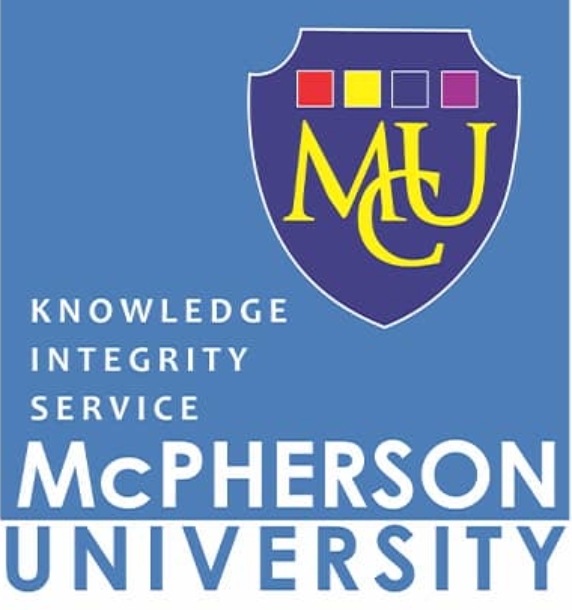
=============
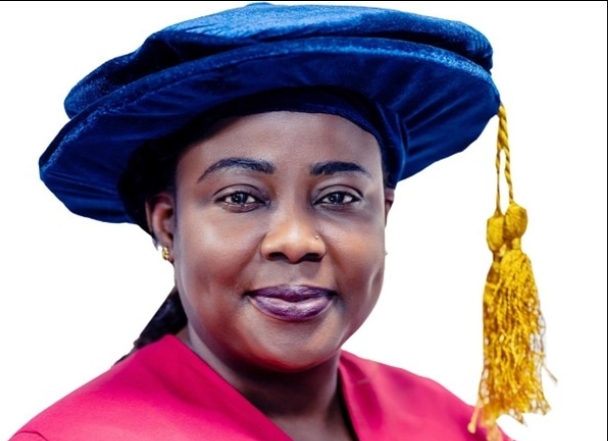
TAU Sets New Benchmarks for Academic Excellence and International Competitiveness
Thomas Adewumi University (TAU), located in Oko, Kwara State, Nigeria, is one of the nation’s fastest-rising private institutions. Established in 2021, the university is driven by a clear vision to deliver world-class education rooted in innovation, excellence, and community impact. Despite its young age, TAU has already distinguished itself through its commitment to uninterrupted academic progression, industry-relevant programs, and global partnerships with leading institutions and organizations.
Today, TAU offers more than 27 accredited programs across medicine, law, physiotherapy, nursing, engineering, and the sciences. Each program is designed with a strong emphasis on digital literacy, entrepreneurship, and practical life skills. With this unique blend of academic rigor, global certifications, and holistic student development, TAU is producing graduates who are not just locally competitive but globally relevant.
At the helm of this transformation is Prof. Francisca Onaolapo Oladipo, Vice-Chancellor, Thomas Adewumi University. She is the first female Professor of Computer Science from Federal University Lokoja and a globally recognized scholar. Prof. Oladipo serves as Secretary-General of the Kwara State Universities Consortium (KU8+) and Vice-President of the Virus Outbreak Data Africa Network (VODAN). Her academic and leadership experience spans Nigeria, Uganda, Kenya, and the Netherlands, where she has pioneered projects in data science, machine learning, and open science. Her global recognition includes the 2024 Emerging Scholar Award in Spain and the 2022 Most Inspiring Initiative Award in the Netherlands.
Reflecting on her journey, Prof. Oladipo often describes her career as proof that perseverance, vision, and an unyielding pursuit of excellence can transform both lives and institutions. After earning her bachelor’s, master’s, and PhD degrees in Computer Science at Nnamdi Azikiwe University, she broke new ground as the first female Head of Computer Science and the first woman elected to the Governing Council at Federal University Lokoja, where she also pioneered its Quality Assurance Directorate. A turning point came in 2014 with her Spring Postdoctoral Fellowship at MIT, which she describes as “opening her eyes to global possibilities.”
Commenting on the unique opportunities that distinguish Thomas Adewumi University as a hub of global excellence, the Vice-Chancellor described the institution as “not merely another university, but Nigeria’s undisputed Leading Light in Science, Technology, Engineering, Medicine, and Innovation (STEM-i) education, offering unique opportunities that position our students for global success.”
That bold vision is already backed by remarkable achievements. At the university’s inaugural convocation in 2024, an astonishing 23 percent of graduates earned first-class degrees, a benchmark that surpasses global standards and outshines even long-established universities. Thomas Adewumi University also maintains a flawless 100 percent accreditation rate from the National Universities Commission across its 27 academic programs in seven faculties. In 2025, the institution earned national acclaim by winning the Best AI or AI-Related Programme Award (University Category) at Nigeria’s AI Awareness Day in Higher Education, triumphing over universities with decades of experience. In less than five years, TAU has risen to 5th position among Nigeria’s private universities, 50th overall nationally, and most remarkably, number one among all universities established in 2021.
Global partnerships continue to extend the university’s reach and enrich its offerings. Through strategic collaborations with Saylor Academy, students gain access to digital, shareable certificates recognized worldwide. Coursera partnerships further equip graduates with on-demand, industry-relevant certifications that enhance employability on a global scale. TAU also stands as the only institution in Nigeria certified by the National Open College Network (NOCN) in the United Kingdom, underscoring its commitment to international best practices in informal learning recognition. Every graduate leaves with at least two ICT certifications, from industry leaders such as Oracle and Microsoft, ensuring competitiveness in the global workforce.
Innovation also defines the academic landscape at TAU. The university is one of only three in Nigeria offering a Doctorate in Physiotherapy, a program even the University of Ilorin does not provide. It is the only private university in Kwara State offering medical programs, with a full operational license from the NUC to run a Faculty of Nursing Science.
Equally distinctive is the university’s model of self-sufficiency. From food production and cattle rearing to construction, woodwork, and metalwork, the institution sustains its community with minimal external dependence. “We do practically everything ourselves,” Professor Oladipo explained. “For us to take even our vehicle outside to the mechanics, it must be beyond us.” Sustainability is another hallmark, with the university operating one of Nigeria’s greenest campuses. Its solar farm powers not only the institution but also the surrounding Oko community, while its teaching, research, and outreach advance all 17 of the United Nations’ Sustainable Development Goals.
Research remains a pillar of TAU’s mission. Under Professor Oladipo’s leadership, the university has attracted nearly $175,000 in grants, including a recent $75,000 award, strengthening institutional financing and driving cutting-edge scholarship.
Highlighting some of the policies and programs designed to sustain the quality education for which Thomas Adewumi University (TAU) has become known, Prof. Francisca Onaolapo Oladipo emphasized that the institution’s commitment to excellence is anchored on comprehensive, innovative frameworks that guarantee consistent delivery of world-class education while preparing students for global competitiveness.
She explained that one of her first actions upon assuming office was to craft the TAU Strategic Excellence Framework. “When I arrived, the university had no strategic plan, a lot of things were happening but not coordinated. I immediately produced a comprehensive plan that transformed our trajectory,” she noted. Under this framework, TAU has expanded from 13 academic programs to 27 fully accredited offerings, ambitiously adding medicine and law decades ahead of schedule.
The university also enforces an Unbroken Academic Progression Policy, ensuring uninterrupted learning in contrast to the disruptions common in the Nigerian higher education system. This policy allowed TAU’s pioneer students to complete their degrees in just over three years, positioning them for timely entry into the workforce or postgraduate study.
To ensure graduates are globally competitive, TAU operates a Mandatory Skills Certification Program. Every student must earn at least two internationally recognized ICT certifications from platforms such as Oracle and Microsoft. Through its unique certification from the UK’s National Open College Network (NOCN), students also acquire additional credentials that are globally recognized. Complementing this is the university’s Practical Life Skills Integration initiative, which teaches students essential household maintenance tasks such as changing sockets and repairing sinks, skills designed to prepare them for everyday challenges beyond academia.
Faculty development remains central to TAU’s vision. The university maintains strict requirements for advanced qualifications while investing in continuous professional development. Faculty members actively engage in international conferences, collaborative research, and specialized training, ensuring they remain leaders in their disciplines. Academic programs are also designed in partnership with industry stakeholders, embedding an industry-integrated curriculum that equips students with relevant, workplace-ready skills, reinforced by hands-on learning in state-of-the-art laboratories and simulation centers.
Innovation also drives the university’s quality assurance system, strengthened through collaborations with global institutions and platforms such as Oracle Academy, Google Research, MIT OpenCourseWare, Coursera for Campus, GitHub Campus, and the KU8+ Consortium of Universities in Kwara State. These partnerships give students unparalleled access to digital tools, research resources, and global learning opportunities.
TAU has also created strong institutional frameworks supporting both faculty and student research, with the Thomas Adewumi University Journal of Innovation, Science and Technology (TAU-JIST) serving as a dedicated platform for scholarly publishing and knowledge dissemination.
The university’s holistic approach extends to student life as its residential model fosters community and personal growth, with accommodation on both East and West campuses. Living arrangements ranging from single to four-person rooms are complemented by communal spaces featuring televisions, table tennis, pool tables, board games, and kitchenettes, designed to promote interaction and balanced development.
On the institution’s corporate values, the Vice-Chancellor noted that TAU’s remarkable resilience and sustained integrity in Nigeria’s challenging economic climate stem from deep-rooted principles that have preserved its reputation while positioning it for unprecedented growth.
She recalled that in early 2022, when the founder of TAU faced serious challenges and described the institution as “a ship sinking,” he sought new leadership. Although she initially declined the offer in order to pursue her international career plans in Canada, Prof. Oladipo was eventually moved by the vision and potential of the university. Her decision to join, she further noted, completely transformed TAU’s trajectory, ushering in a new era of strategic innovation and visionary leadership.
Financial prudence has been central to this transformation. By revolutionizing the university’s financial model through strategic grant acquisition, TAU has secured nearly $175,000 in international grants since her appointment, easing the burden that previously rested on the founder’s generosity. This diversification created sustainable streams of income that protect the institution from economic volatility. Complementing this is TAU’s unique culture of self-reliance, where the university grows its own food, rears cattle, constructs its buildings, and produces much of its furniture internally, an approach that reduces costs while strengthening independence.
Innovation also drives revenue generation. The institution’s certification under the United Kingdom’s National Open College Network (NOCN) has enhanced student employability while empowering local artisans with credentials that open global opportunities. This initiative not only creates sustainable income but also strengthens community development. Similarly, TAU’s strategic positioning in high-demand fields, such as its pioneering Doctorate in Physiotherapy, one of only three in Nigeria and its medical programs as the only private university in Kwara State offering such training, ensures consistent enrollment even in difficult times.
At the heart of TAU’s philosophy is a belief in excellence over profit. Despite economic pressures, the university has refused to lower its academic standards, a decision validated in 2025 when it won Nigeria’s Best AI Programme Award, demonstrating that commitment to excellence attracts opportunities rather than deters them. Transparent governance and ethical leadership have further earned the trust of international partners including Oracle Academy, Google Research, MIT OpenCourseWare, Coursera for Campus, and GitHub Campus, who continue to invest in TAU’s vision.
Community integration serves as another pillar of resilience. By providing employment, healthcare through its medical center, and infrastructure development, TAU has cultivated a strong bond with the Oko community, which now views the institution not as an external entity but as a partner in development. Staff commitment further strengthens this foundation; despite the challenges of attracting talent to a rural location, TAU has built a team of dedicated professionals united by a shared vision of excellence.
Perhaps most striking is TAU’s long-term investment mindset. Instead of cutting back during economic uncertainty, the institution has consistently invested in infrastructure, technology, and human capital. This forward-looking approach, Professor Oladipo emphasized, positions the university to emerge stronger from economic adversity.
Speaking about opportunities for Thomas Adewumi University (TAU) students, Prof. Oladipo emphasized that they enjoy unprecedented global access through concrete partnerships, certifications, and networks that position them as competitive international leaders.
Through her leadership of VODAN Africa, TAU students directly contribute to groundbreaking global research, including FAIR Data Points projects across Africa and Europe, giving them hands-on international data science experience. As the only Nigerian university certified by the UK’s National Open College Network (NOCN), every graduate earns globally recognized ICT and professional certifications, while ongoing negotiations with Coursera and partnerships with Oracle Academy, Google Research, MIT OpenCourseWare, and GitHub Campus further enhance employability. Specialized healthcare programs such as the Doctorate in Physiotherapy and accredited Nursing Science prepare graduates for high-demand global careers, while TAU’s Best AI Programme in Nigeria award connects students to international AI collaborations.
TAU also prioritizes practical skills through technical training and household maintenance programs, ensuring students possess market-ready competencies valued worldwide. Students benefit from research publication opportunities in TAU-JIST, entrepreneurial incubation, and global development engagement through all 17 UN SDGs, equipping them for careers in multinational corporations, NGOs, and international organizations. An expanding alumni network and the Vice-Chancellor’s own international recognition further open doors, ensuring TAU graduates are not only Nigerian success stories but global citizens with competitive skills, credentials, and networks.
Looking ahead, TAU’s five-year strategic vision, “TAU 2030: Global Leadership Through African Innovation,” aims to cement its place among the world’s top emerging universities. Plans include establishing an Institute for Sustainable Development, expanding VODAN’s reach to 20 African countries, publishing over 500 high-impact papers, and securing $10 million in international research grants. TAU targets a Top 500 global ranking and Top 5 in Africa by 2030, with 30% international student enrollment, 40% foreign faculty, and satellite campuses across Africa and abroad. Other goals include 100% graduate employability, $50 million in research funding, a 500-bed teaching hospital, a carbon-neutral smart campus, a Silicon Valley–style innovation park, and a 50,000-strong global alumni network.
“Our journey from a startup university in 2021 to global recognition in 2025 shows that these ambitious goals are not just aspirational but achievable,” Professor Oladipo affirmed. “TAU will emerge as a beacon of African excellence, innovation, and global leadership in higher education.”
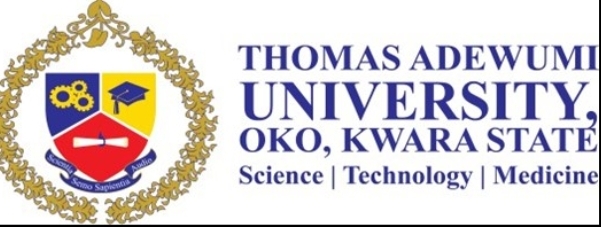
===============
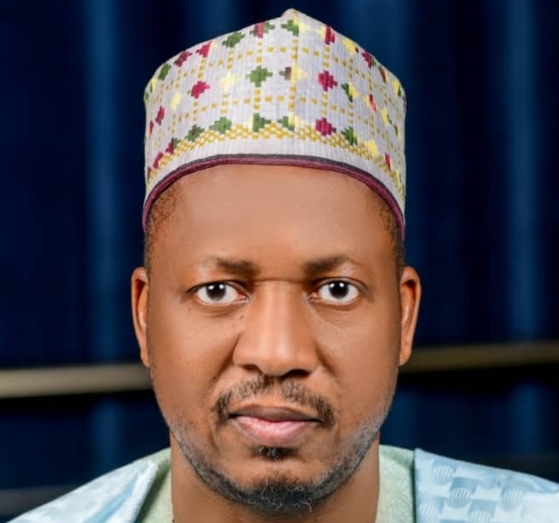
Guided by Prof. Haruna Musa, Bayero University Kano Emerges as a Global Force in Higher Education
As global higher education continues to transform, Nigerian universities are increasingly stepping onto the global stage and among them, Bayero University Kano (BUK) stands out as a powerful force driving academic excellence, innovation, and international collaboration. From its humble beginnings in 1962, BUK has grown into a prestigious institution that not only shapes the intellectual future of Nigeria but also commands recognition far beyond the country’s borders.
At the forefront of this transformative journey is Professor Haruna Musa, the 12th substantive Vice-Chancellor of Bayero University Kano. A distinguished scholar and leading expert in Polymer Chemistry, Professor Musa brings over 32 years of teaching, research, and administrative experience to his role. He holds B.Sc. and M.Sc. degrees in Chemistry from BUK and earned his Ph.D. in Polymer Chemistry from the University of Bristol, UK. Since his promotion to Professor in 2019, he has supervised more than 300 undergraduate and 60 postgraduate students, contributed 52 journal articles and 8 book chapters, and presented at over 40 international and local conferences.
Professor Musa’s leadership extends far beyond the classroom. Over the course of his career, he has held numerous key administrative positions, including Deputy Vice-Chancellor (Academics), Head of Department, and Deputy Director at the Centre of Excellence (CREST). He is also widely recognized for spearheading high-impact research initiatives, such as a groundbreaking ₦36 million zinc–air battery project, and for fostering international collaborations that span the UK, USA, and Africa.
One of the clearest indicators of BUK’s growing global stature is its consistent presence in international university rankings. In 2023, the university earned a coveted place among the top 1200 universities worldwide and was named the fourth-best university in Nigeria by the Times Higher Education World University Rankings, a remarkable achievement that underscores its academic quality and competitive edge. BUK has also featured prominently on the U.S. News Best Global Universities list, further highlighting its rising reputation for impactful research and academic excellence.
Yet these accolades are more than just numbers on a chart; they are the result of a deliberate and strategic vision. At its core, BUK is guided by a mission to address Africa’s developmental challenges through cutting-edge research, knowledge transfer, and the production of highly skilled graduates. This mission extends the university’s influence well beyond national borders, positioning it as a vital contributor to solving real-world problems from public health and sustainable energy to science, technology, and governance.
A major driver of BUK’s global recognition is its strong focus on international collaboration. The university actively forges partnerships with leading institutions and organizations around the world, creating opportunities for joint research, faculty exchanges, and knowledge-sharing initiatives. Collaborations such as the ACEPHAP/KNDI partnership exemplify BUK’s strategy of building cross-border networks that enhance academic capacity, improve research outcomes, and amplify its global footprint.
Equally central to its reputation for excellence is BUK’s unwavering commitment to producing high-quality graduates who are equipped to make meaningful contributions both nationally and internationally. These graduates trained through a blend of rigorous academic instruction and practical experience emerge as innovators, leaders, and problem-solvers ready to shape industries, influence policy, and drive sustainable development across Africa and beyond.
Within Nigeria, Bayero University’s achievements have firmly established it as one of the country’s leading academic institutions. Its strong performance in fields such as Health and Physical Sciences reflects a depth of expertise that continues to gain recognition among global peers. This national prominence, coupled with its international engagements and research impact, demonstrates how BUK successfully bridges the gap between local relevance and global competitiveness.
From its foundation in Kano to its growing influence across continents, Bayero University Kano exemplifies the power of visionary leadership, academic excellence, and collaborative innovation. As it continues to expand its global partnerships, advance pioneering research, and nurture the next generation of thinkers and leaders, BUK stands not only as a pillar of Nigerian higher education but as a university shaping Africa’s future and contributing meaningfully to the global pursuit of knowledge.
==================
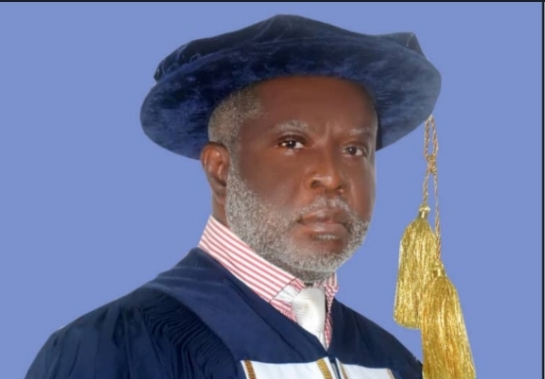
Rivers State University: Driving Innovation and Global Excellence in Higher Education through Prof. Isaac Zeb-Obipi
When conversations turn to Nigerian universities redefining higher education through innovation and global competitiveness, Rivers State University (RSU), Port Harcourt, naturally takes its place at the table. Established in October 1980 from the Rivers State College of Science and Technology (itself founded in 1972), RSU stands as the first technological university in Nigeria and the first state-owned university in the Niger Delta. Over four decades later, the institution continues to embody its guiding motto, “Excellence and Creativity,” as it shapes minds, advances knowledge, and contributes to both national and global development.
With a robust staff strength of about 1,800 and a vibrant student population of over 28,000, RSU is more than a university, it is a living engine of innovation, producing graduates equipped to compete anywhere in the world. The institution delivers its programmes in English, underscoring its readiness to engage with global academia while preparing students for a borderless workforce.
At the heart of RSU’s mission is a clear mandate to produce scientific and technical manpower critical for national development; train the next generation of science and technology teachers; support industrial growth and socio-economic transformation through consultancy, research, and specialized centres; uphold inclusivity by offering higher education opportunities without barriers of race, creed, gender, or political conviction; and foster intellectual advancement through comprehensive undergraduate and postgraduate programmes across diverse disciplines.
Leading the University is Prof. Isaac Zeb-Obipi, the 12th Vice-Chancellor of Rivers State University, a distinguished scholar, administrator, and traditional ruler, hailing from Ogoloma in Okrika Local Government Area of Rivers State. A Professor of Management with specialization in Organizational Behaviour, Human Resource Management, and Industrial Relations, he holds degrees from the University of Ibadan (B.Ed. Economics) and Rivers State University (MBA, PhD).
Since joining RSU in 1997, Prof. Zeb-Obipi has served in several strategic capacities including Director of ICT Centre, Dean of Student Affairs, University Orator, and member of the Governing Council. With nearly three decades of teaching, over 100 publications, and the mentorship of more than sixty doctoral graduates, he has combined scholarship with innovative leadership, driving reforms in ICT, student affairs, and academic administration.
Prof. Zeb-Obipi brings to his role a reputation for excellence, innovation, and a clear vision to further strengthen RSU’s place as a hub of global academic relevance.
Speaking on the mandate of Rivers State University, the Vice-Chancellor explained that the institution was founded with a clear vision to drive both human and societal development. At its core, River State Universty was established to produce the scientific and technical manpower essential for national growth, equipping graduates with the knowledge and skills needed to power industries and sustain innovation. It was also designed to train the next generation of science and technology teachers who would, in turn, nurture minds and fuel development across communities.
Beyond academics, the university’s role extends to supporting industrial and developmental programmes through consultancy services, specialized project centres, and applied research activities that connect classroom learning with real-world solutions. Yet, the vision of RSU is not confined to technical expertise alone. The institution is also deeply committed to the advancement of learning as a universal right, opening its doors to all, irrespective of race, creed, gender, or political belief, and providing opportunities for a higher and liberal education.
Through its diverse faculties and institutes, the university ensures that students have access to robust instruction, modern facilities, and an environment designed to help them reach their full potential. The Vice-Chancellor emphasized that this mandate continues to define RSU’s identity today, positioning it as more than just a centre of learning, it is a catalyst for progress, creativity, and inclusive excellence.
Giving an overview of Rivers State University, Professor Obipi painted a picture of an institution that has grown into a true citadel of knowledge, innovation, and societal impact. He explained that RSU offers 37 undergraduate programmes and 86 postgraduate programmes, a breadth of opportunities that reflects its commitment to training future leaders, professionals, and innovators. These programmes are deliberately structured to respond to national needs while equipping graduates with skills that meet international standards, ensuring RSU’s place among universities aspiring to global excellence.
Beyond its degree offerings, River State University is distinguished by its six specialized institutes, the Institute of Foundation Studies, the Institute of Education, the Institute of Pollution Studies, RIART, the Institute of Geosciences, and the Institute of Space Technology. According to him, each of these institutes tells a story of a university deeply engaged with the challenges of its environment and the wider world. From tackling the urgent issue of environmental degradation through pollution studies to advancing knowledge in geosciences and space technology, RSU is positioning itself at the frontiers of research and discovery.
Complementing this are four vibrant centres that extend the university’s impact beyond the classroom, the Centre for Continuing Education, the Centre of Excellence in Marine and Offshore Engineering, the Information and Communication Technology Centre, and the Entrepreneurship Development Centre. “These centres reflect the university’s pragmatic approach, bridging academia with industry, encouraging innovation, and fostering entrepreneurship among students who are expected not only to seek jobs but to create them” he affirmed.
The strength of RSU also lies in its twelve faculties; ranging from Agriculture to Basic Medical Sciences, the College of Medicine, Communication and Media Studies, Education, Engineering, Environmental Sciences, Humanities, Law, Management Sciences, Social Sciences, and Science, alongside its robust Postgraduate School. Together, these faculties represent a microcosm of knowledge and discovery, shaping graduates who are equally at home in local industries and global arenas.
Professor Obipi emphasized that RSU’s structure is more than an academic blueprint; it is a deliberate strategy to cultivate well-rounded graduates who combine creativity with competence, and tradition with innovation, saying that In aligning its teaching, research, and community service with international best practices, Rivers State University continues to affirm its place in the league of Nigerian universities pursuing global excellence.
Talking about opportunities, the Vice-Chancellor was quick to highlight one of Rivers State University’s greatest strengths, the employability of its graduates as he disclosed that job prospects for RSU graduates are excellent, attributing this to the university’s strong partnerships with industry and professional bodies. “These collaborations ensure that every aspect of the curriculum is designed with the job market in mind, equipping students with both the skills and the qualifications needed to thrive in today’s competitive world. Many courses even incorporate work placements, giving students invaluable real-world experience and a head start in their careers”. He stressed
Equally important is the calibre of RSU’s teaching staff. With a team of first-rate academics across a wide range of disciplines, students are guided by experts who set them firmly on the path toward academic success and professional achievement. The university’s forward-looking policy on the use of Information and Communication Technology further enhances this experience, embedding 21st-century educational skills into learning and creating a vibrant, technology-driven environment.
The Vice-Chancellor enthused that River State University’s excellence in teaching, particularly in the areas of creative and professional practice, is widely recognized, saying that the institution’s reputation as a leading practitioner of business and industry collaboration has not only strengthened its standing in Nigeria but also positioned it as a university with growing global relevance. In his words, “Rivers State University does more than educate, it empowers, innovates, and connects its students to a future of limitless possibilities”.
Commenting on why prospective students should study at Rivers State University, Professor Obipi described RSU as a vibrant, technology-driven, and multicultural institution where ambition meets opportunity. “If you’re seeking a university that not only challenges your intellect but also prepares you for a dynamic future, then RSU is the place for you,” he affirmed. With an impressive range of undergraduate courses carefully designed to align with career aspirations, the university ensures that students graduate with both knowledge and the practical skills needed to thrive in a rapidly changing world.
River State University has built an enviable reputation for providing quality, student-focused education in an environment that is as warm and welcoming as it is intellectually stimulating. What sets the university apart is not only its academic rigour but also its commitment to nurturing creativity, innovation, and enterprise. Its mission, the Vice-Chancellor explained, is to be a powerful force for learning and discovery while promoting economic, social, and cultural wellbeing.
For students, this means more than just earning a degree, it means joining a community where ideas are cultivated, talents are sharpened, and opportunities are endless. Amongst Nigerian universities striving for global excellence, Rivers State University stands out as a place where tomorrow’s leaders are equipped to excel not just at home, but on the global stage.
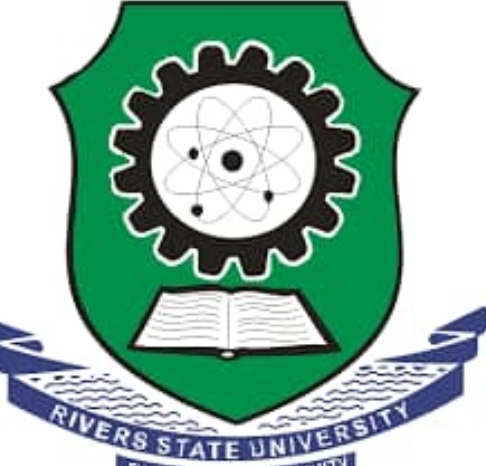
============
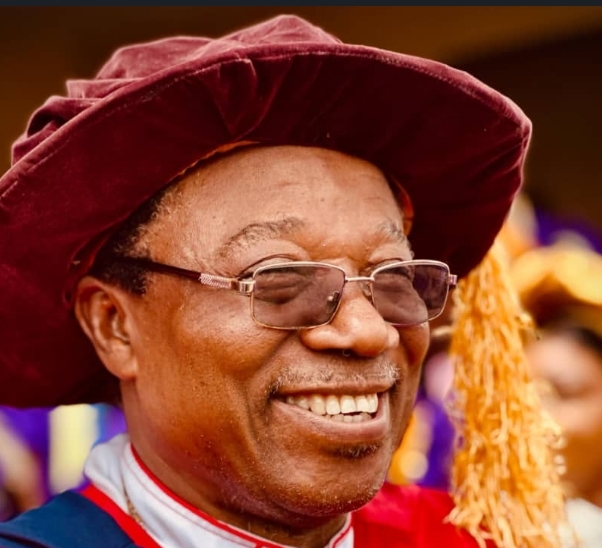
Breaking Boundaries: Rt. Rev. Prof. Obeka Positions Wesley University for Global Relevance
Amid the shifting currents of Nigeria’s higher education sector where institutions are under increasing pressure to balance global competitiveness with local relevance, Wesley University, Ondo, has emerged as a bold vision with a clear sense of mission. A faith-based institution founded by the Methodist Church Nigeria, its creation went beyond the arithmetic of numbers, aiming instead at reimagining what a university should be: a citadel of learning where knowledge and character intertwine. Today, Wesley University is redefining the role of tertiary education by nurturing graduates who embody integrity, innovation, and a deep commitment to service.
With a vision to be a centre of excellence in knowledge creation, moral regeneration, and development, Wesley University has steadily taken shape under the leadership of its third substantive Vice-Chancellor, Rt. Rev. Prof. Obeka Samuel Sunday. A man who embodies both scholarship, spiritual leadership, and institutional stewardship, Prof. Obeka has brought fresh energy to the institution, combining academic rigor with progressive inclusivity. His leadership has not only expanded the university’s academic programmes from 22 at his inception to over 55 today across multiple colleges including Law, Education, and Health Sciences, but also elevated its research profile through international collaborations.
Talking about unique opportunities that set the institution apart as a university of global excellence, The Vice chancellor noted that Wesley University stands out by offering a blend of academic quality, inclusivity, innovation, and international exposure that few institutions can match. “Our vision is not just to produce graduates, but to nurture globally competitive leaders with integrity, creativity, and a strong sense of service” he affirmed.
One of its most striking innovations is its commitment to inclusivity, as it is the only university in Nigeria where deaf students are fully integrated into academic programmes using sign language. With trained interpreters and a partnership with Gallaudet University in the United States, Wesley is building a world-class Deaf Space Project, making it a pioneer in inclusive education on the African continent. This initiative, celebrated widely, underscores the university’s commitment to global standards while addressing local realities.
The university has also been aggressive in expanding its academic portfolio, offering both traditional and cutting-edge programmes. In recent years, flagship courses such as Law, Medicine and Surgery, Nursing, Anatomy, Physiology, and Theatre Arts have been introduced, alongside skill-driven, future-ready programmes like Sign Language Education, Cybersecurity, Transitional Doctor of Physiotherapy (DPT), Security Management, Media Production, Fish Breeding, Apiculture, and Food Product Development. Each programme, Prof. Obeka emphasizes, is designed to meet national priorities while equipping graduates for international relevance.
Beyond its partnership with UNIMED Teaching Hospital, Ondo, Wesley has signed strategic agreements with Nibanola Motherland (for agricultural innovation), the Canadian Education Centre, Cliff College (USA), and Girne American University (Cyprus). These collaborations open doors for students to benefit from exchange programmes, research partnerships, and exposure to global best practices.
Inside the campus, students thrive in a distinctive learning ecosystem supported by a robust e-library, digital learning systems, a museum, and even a mini-zoo that enrich academic and cultural studies. Add to this the success of Wesley students in securing prestigious international scholarships like Chevening, Erasmus Mundus, and Fulbright, and it becomes clear that Wesley is equipping its graduates with more than degrees: it is giving them passports to the world.
One of the university’s strongest pillars is its culture of strategic collaborations. A Professor of Geography and Environmental Education, he disclosed that through a Memorandum of Understanding with the University of Medical Sciences Teaching Hospital (UNIMEDTH), Ondo, students in medical and health sciences enjoy access to world-class clinical training. Partnerships with Nibanola Motherland (agriculture), the Canadian Education Centre, Afe Babalola University, Cliff College (USA), and Girne American University (Cyprus) broaden opportunities for research, innovation, and international exchange. These alliances ensure Wesley students are not only grounded in theory but also exposed to best practices across borders.
On what has been his administration’s major focus in positioning Wesley University as a globally competitive university, Rt. Rev. Prof. Obeka Samuel Sunday disclosed that on assuming office as the Vice-Chancellor in 2022, the institution was teetering on the edge of collapse. Years of unpaid salaries, mounting debts, and low morale had cast a shadow over its future. Some staff had gone an entire year without pay, and families where both husband and wife worked at the university bore the brunt of its financial instability.
Prof. Obeka’s first order of business was therefore to restore financial integrity and rebuild trust, his administration therefore, instituted a consistent salary structure, ensuring that staff are now paid promptly between the 15th and 20th of every month. This single act of discipline and commitment rekindled staff confidence, boosted morale, and laid a firm foundation for long-term stability.
With finances stabilized, the Vice-Chancellor turned his attention to the development of human capital. The establishment and accreditation of the School of Postgraduate Studies opened new pathways for staff to upgrade their qualifications, while also positioning Wesley as a training ground for the next generation of scholars and professionals.
At the same time, the administration continues to pursue strategic partnerships, international collaborations, and programme accreditations that align Wesley University with global best practices. The expansion of professional and skill-driven courses ensures that graduates are not just degree holders, but solution-providers equipped for today’s dynamic world.
In just a short period, these deliberate measures have transformed Wesley University from a struggling institution into a rising beacon of excellence.
“Our focus has been simple but strategic,” Prof. Obeka reflects. “Restore financial stability, invest in staff and student development, and expand academic offerings that respond to national and global needs. These are the building blocks that will sustain Wesley University as a globally competitive institution.”
